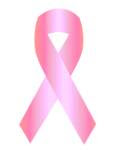The possibility of low-dose Molecular Breast Imaging (MBI) looks promising according to the most recent clinical evidence revealed this past month at the National Institutes of Health (NIH). Dr. Marcela Bohm-Velez and her colleagues from Associates in Pittsburgh, Pa., shared preliminary results from a prospective study on low-dose MBI, specifically Breast-Specific Gamma Imaging (BSGI), at the SNM Breast Cancer Imaging: State of the Art 2011. Their results suggest it may be possible to reduce the radiation dose patients receive from a BSGI procedure by up to 60 percent.
The tracer used in this procedure, Technetium Tc99m Sestamibi (MIBI), has commonly been used in cardiac studies for years and was cleared by the FDA in the mid-1990s for diagnostic breast imaging. The recommended dose (20 - 30 mCi) was established using an older, larger, less sensitive whole body imaging system. Newer breast-optimized imaging systems have an inherently higher photon sensitivity that may allow a lesser dose to be used.
source: Dilon Diagnostics
5.15.2011
Latest Clinical Evidence Supports Promising Outlook For Low-Dose Molecular Breast Imaging (MBI)
Subscribe to:
Comments (Atom)
